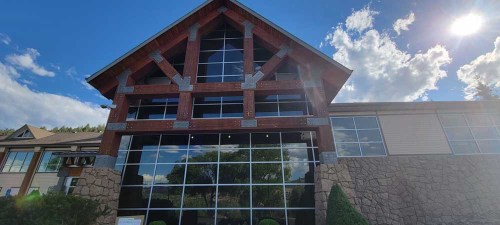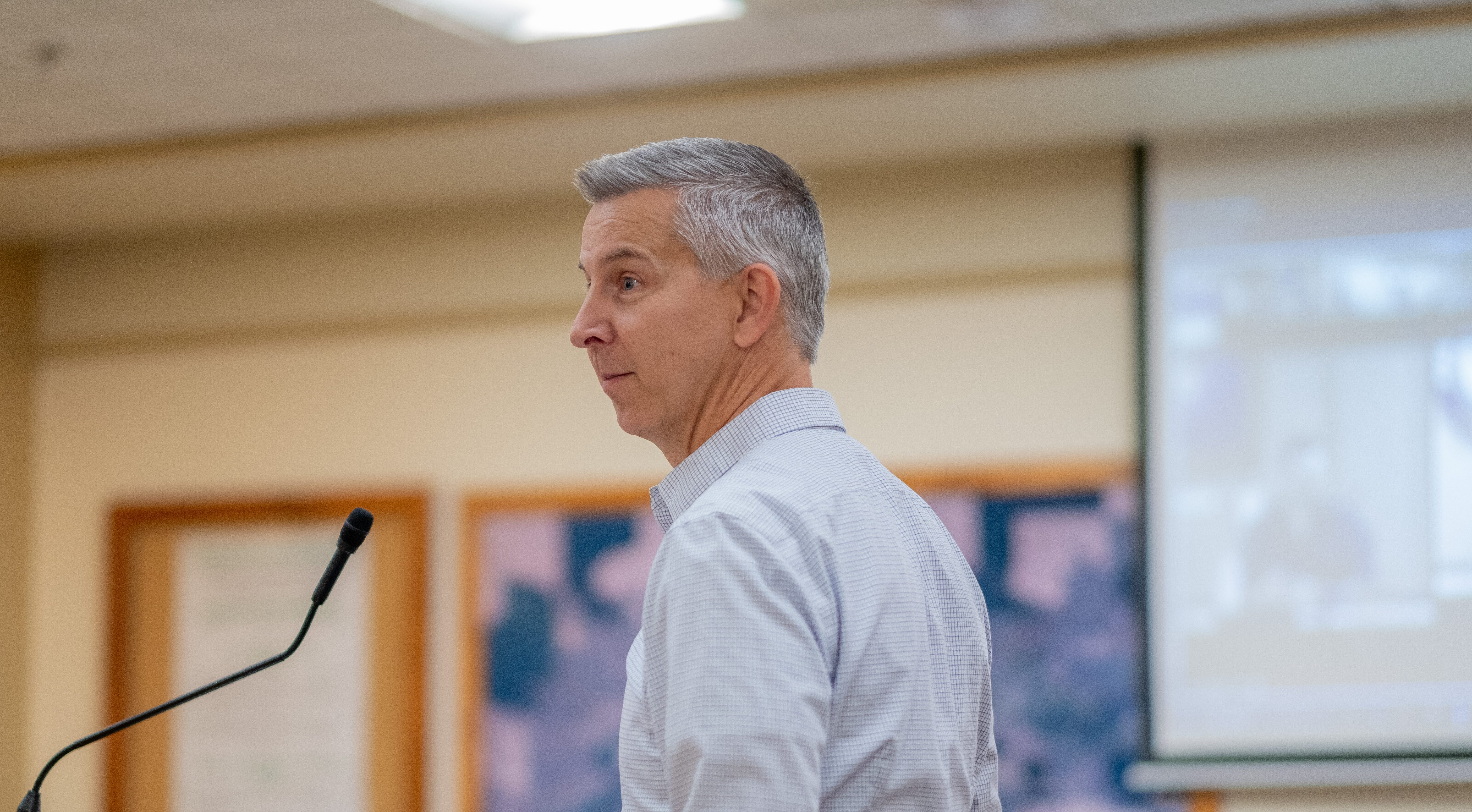Hospital board runs afoul of open meetings law in appointments of two board members
Published 1:30 pm Tuesday, September 20, 2022

- Blue Mountain Hospital in John Day.
JOHN DAY — The Blue Mountain Hospital Board of Directors appears to have sidestepped the state’s open meetings law when it appointed two new members to fill open seats on the board.
The first the public heard about recently appointed board members Kristine Tanory and Timothy Unterwegner is when they were sworn in during the board’s Aug. 22 and May 26 meetings, respectively.
Trending
The hospital district is a publicly funded taxing district that operates the hospital and other entities in Grant County. It is governed by a seven-member board of directors. The directors serve four-year terms and are elected by the voters, much like school board or city council members.
While the law governing health districts does not require vacant seats on the board to be advertised to the public, the Oregon Special Districts Association’s board meeting handbook advises that the public should be given an opportunity to comment. In addition, Oregon open meetings law requires a minimum level of public participation.
In appointing its two newest directors, the board failed to meet either of those standards.
According to the official minutes, board Chair Amy Kreger announced at the board’s April 28 meeting that Dotty Parsons had submitted her resignation effective May 1.
The board went into executive session for nearly an hour at the end of the April 28 regular meeting and then went into open session for 15 minutes. During that open session, the minutes state, Parsons moved to appoint Unterwegner to fill the open seat vacated by Levi Manitsas. It remains unclear when Manitsas resigned from the board.
At the end of the board’s June 22 regularly scheduled meeting — which the newspaper attended — the board went into another closed-door meeting for nearly an hour and then went into open session for three minutes before closing the meeting.
Trending
As recorded in the board’s official June 22 minutes, Kreger told the other members that Gordon Larson thanked the elected directors for considering him to fill the open seat, but he was not interested. Additionally, the minutes show, the board discussed the fact that both Tanory and Chuck Wilson had expressed interest in filling the open seat and that both understood that, if appointed to fill the remainder of the term, they would need to file to run in the 2023 special district election to keep their seat on the board.
The board, according to the minutes, noted that “both candidates would be a good fit and a welcome addition.” Board member Shawna Clark moved to appoint Tanory based on her experience and medical background.
In a phone interview, Larson said someone — although he could not recall who — had reached out to him about filling the open seat on the hospital board.
Additionally, Chuck Wilson told the newspaper that a member of the community had asked if he would be interested in serving on the board and that Kreger contacted him about the matter. Wilson said Kreger asked him to send her an email expressing interest in the position.
As previously reported, the board followed a similar process in the hiring of Cam Marlowe, the hospital district’s chief executive officer, this spring. The public did not learn that Marlowe was a candidate for the job until after he had accepted the position.
There is no indication that either Tanory or Unterwegner did anything wrong in connection with their appointments to the board, just as there was no suggestion of wrongdoing by Marlowe.
However, as was the case with Marlowe, the board — the publicly elected governing body of the hospital taxing district — appears to have again violated the state’s public meetings law.
‘It’s not their private club’
State law explicitly allows a public body to meet privately in an executive session — where the public is barred and reporters are instructed not to report on the proceedings — but only in certain narrowly defined circumstances. The statute also makes it clear that no final action or decision can be made during an executive session.
Public bodies can meet in an executive session to “consider the employment of a public officer, employee, staff member or individual agent,” the law says. However, if the position to be filled is a CEO or public officer, the public body must first advertise the vacancy and then — in an open session — approve hiring standards, criteria, compensation and policy directives. It must also allow opportunity for public comment.
Also, according to the Attorney General’s Public Meetings Manual, the board cannot meet in a private session to consider appointing someone to fill a vacancy on the board.
Tonya Grass, a legal and technical support administrator with the Special Districts Association of Oregon, said that under the law the hospital board can appoint whoever it wants, but it has to do so in open session.
“The board may still vote in and appoint whatever candidate they choose to best fill the vacancy,” Grass said, “whether they advertise the opening or not; it would just be done in open session, not in executive session.”
Jack Orchard, a lawyer from Ball Janik LLP in Portland who specializes in public records and open meetings law, noted that because of the public nature of board positions — as opposed to the employment of staff — none of the actions concerning appointment of new board members can occur without full compliance with the state’s open meetings law.
Orchard said the burden of proving the hospital board is in compliance with the law is on the hospital district, not the newspaper.
The newspaper attempted to contact the hospital district’s legal counsel, Amy Robinson of Miller Nash LLP, by email and then by phone on Tuesday, Sept. 13. Robinson refused to answer any questions and asked instead that the Eagle resend a set of written questions that were originally emailed on Friday, Sept. 9. Robinson has not replied.
The Eagle also emailed Kreger a list of questions regarding the board’s legal basis for the appointments on Aug. 30 and again on Thursday, Sept. 15, but has yet to hear back.
Orchard said the whole idea of the public meeting law is to give the public an opportunity to weigh in on matters such as the hospital board appointments.
“It’s a public agency,” Orchard said. “They do business in public. Why do think they otherwise?
“It’s not their private club.”









